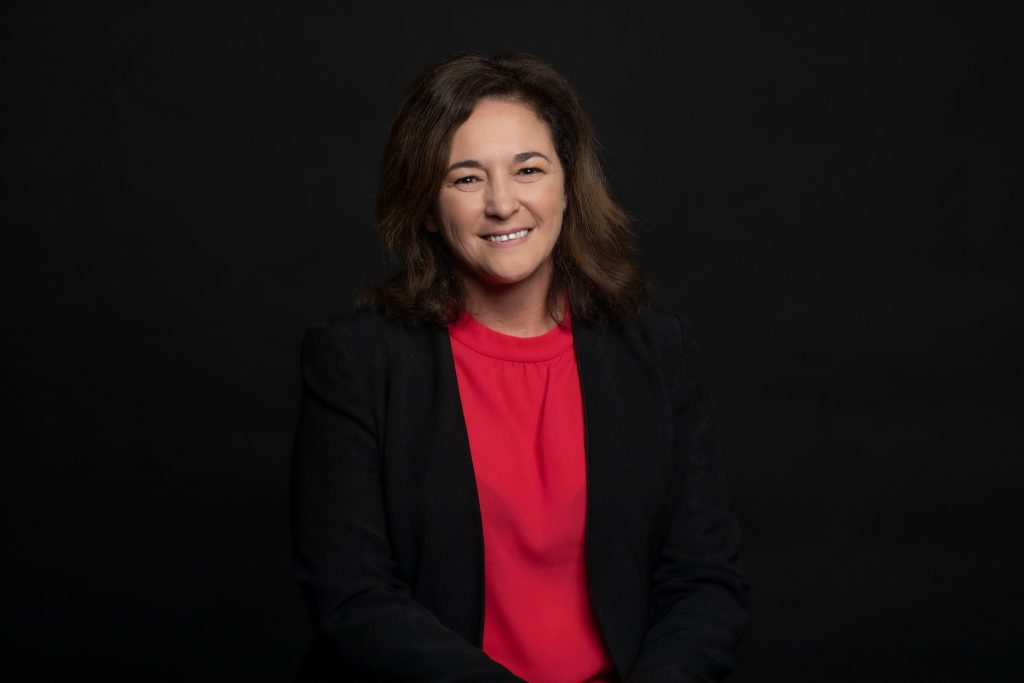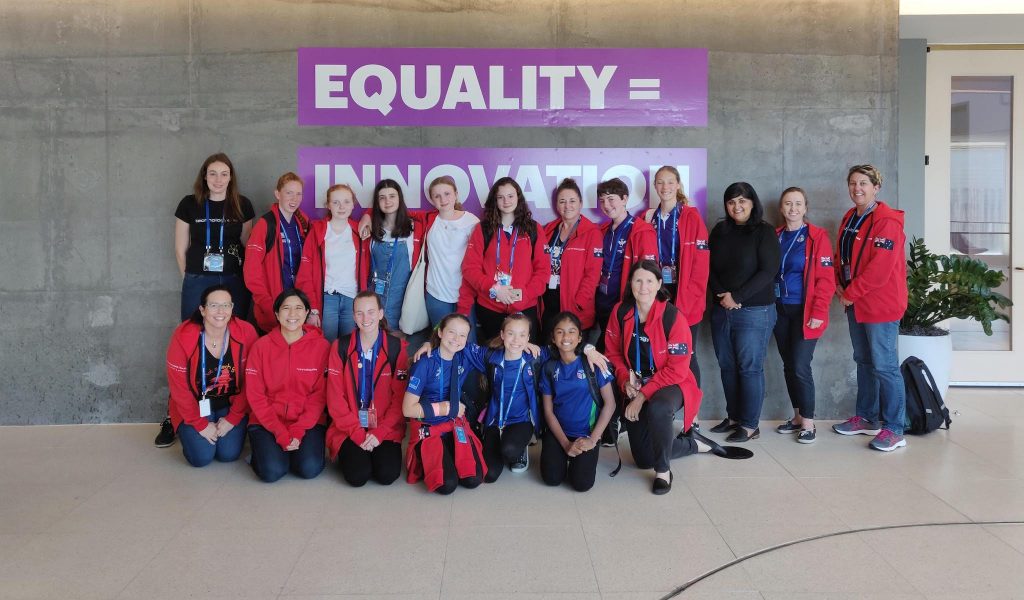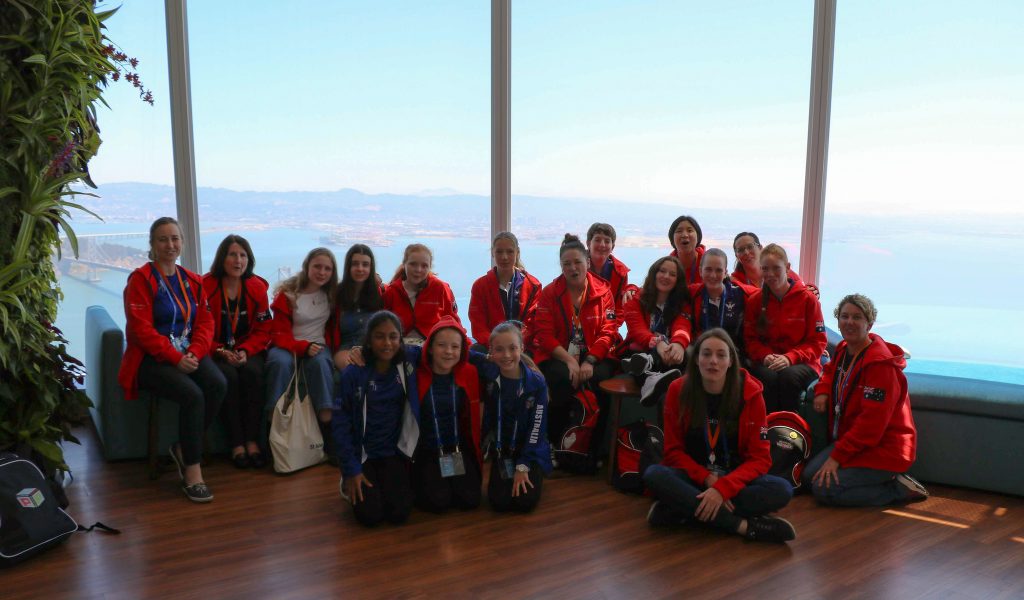
For the past decade, the box office has been dominated by superhero films, providing enjoyable escapism for the masses. One Australian researcher and technologist has harnessed this powerful and popular narrative to encourage more young women into STEM, with exciting results.
“The superhero concept is certainly powerful, particularly for children, who are drawn to dressing up and imagining they have superpowers that can help them ‘save the world,’” says Dr Jenine Beekhuyzen, founder of Tech Girls Are Superheroes.
“I’ll ask girls in schools ‘Can you do x?’ And they’ll go, ‘No, I can’t do it.’ But if I say, ‘If you were a superhero, how would you do it?’ they’ll give me 10 different ways on how they can.
“This is the problem that we find with girls studying STEM [Science, Technology, Engineering and Math] subjects in school — they often opt out of choosing them because they think it’s not for them or that they won’t be awesome at it.”
Girls in Australia are the least likely out of all Asia Pacific economies to undertake STEM subjects in school; just 27% did so according to a recent report commissioned by the Australian government, compared with 76% in China and 69% in India. The effect of this, particularly on the ICT industry, is not hard to see with women representing 28% of the ICT workforce in Australia, compared with 45% across all professional industries.

Jenine has spent more than 20 years researching the factors influencing female perceptions of ICT study and careers.
“It always comes back to the same two things: a lack of visible female role models, and a lack of understanding of what technologists do,” says Jenine.
“People know what a doctor does, and what a builder does, and what a journalist does, but what does a computer scientist or network engineer do? When people explain we often get a whole lot of jargon and it doesn’t seem safe or appealing.
“That’s why our program is really needed, because we want to showcase female role models and break down the terminology to show why studying science is fun and how it can change the world.”
“I have 10-year-olds writing 30-page business plans that are better than university graduates”
Tech Girls Are Superheroes is the signature program of the Tech Girls Movement Foundation (TGMF), a not-for-profit organization established by Jenine in 2014 to promote positive female STEM role models and raise awareness of technology career options for girls.
Held annually, the program is open to teams of girls from the ages of 7 to 17 in Australia and New Zealand who are matched with a female tech mentor who meets weekly with them for 12 weeks. Teams identify a problem in their local community to solve, then research and document a solution in a business plan, build a working app prototype and pitch it in a public video.
“I have 10-year-olds writing 30-page business plans that are better than university graduates. There’s literally hundreds and hundreds of entries that have blown my mind.
“One group recorded their community’s single year’s toxic waste, to help with reducing pollution. Another developed an app for adolescents with depression, to build a community for them. And there’s another that has created an app to report domestic violence anonymously.
“It’s all based on the stuff they’re living. They see it in the street. They’re wanting to do something about it. This gives them the tools and teaches the skills to not just conduct the research or develop apps but solve a proper problem, develop a business plan, and pitch their product.”
More than 10,000 schoolgirls, 1,000 mentors and thousands of support staff, including teachers and parents have been involved in the program. National winners are flown to Silicon Valley with their teacher and chaperones for a week and get to pitch to the top tech companies, including Apple, eBay, Facebook, Google and NASA.
“We would’ve pitched to 60 people over that week last year. They were literally pitching to the NASA engineers working on the next Mars Rover, then hanging out eating pizza in the mansion of the woman who invented the Apple Air Pods.”
Importantly the program has inspired girls to continue studying STEM subjects throughout school and into university.
“One of our girls just won an international award in Korea for a technology she helped develop that detects breast cancer. So, she went on to university, and continued in science and is now a role model for our next generation.”


Championing change in industry
In an effort to expand the research and proven applications it has developed in its short time, TGMF signed on to be a champion of the Women in STEM Decadal Plan.
Developed by the Australian Academy of Science in collaboration with the Australian Academy of Technology and Engineering, the 10-year plan offers a vision and framework to guide decision making and drive investment and effort into STEM measures that work.
“Only 2% of Australian businesses are actively measuring and reporting gender equity statistics in their organizations,” says Jenine. “Without properly understanding the gender equity baseline it’s near impossible to measure the success of any plan or strategy. We’re hoping to raise awareness of this issue among the business community and get them reporting so the research and plan can be better informed.”
“The success of Tech Girls is based on research, more than 20 years of it, so we know the initiatives that we are delivering are going to work.”
TGMF has also partnered with another program, The Academy for Enterprising Girls, which Jenine is hoping will complement the Superheroes campaign by showcasing the business side of STEM.
“The program is aimed at a similar group (Australian girls aged 10 to 18 years old) but will instead offer girls practical advice from some of Australia’s leading businesswomen and organizations. Again, it’s about helping young women develop a positive mindset and encouraging them to consider how being an entrepreneur can have a positive impact on the world.”
The views expressed by the authors of this blog are their own and do not necessarily reflect the views of APNIC. Please note a Code of Conduct applies to this blog.
